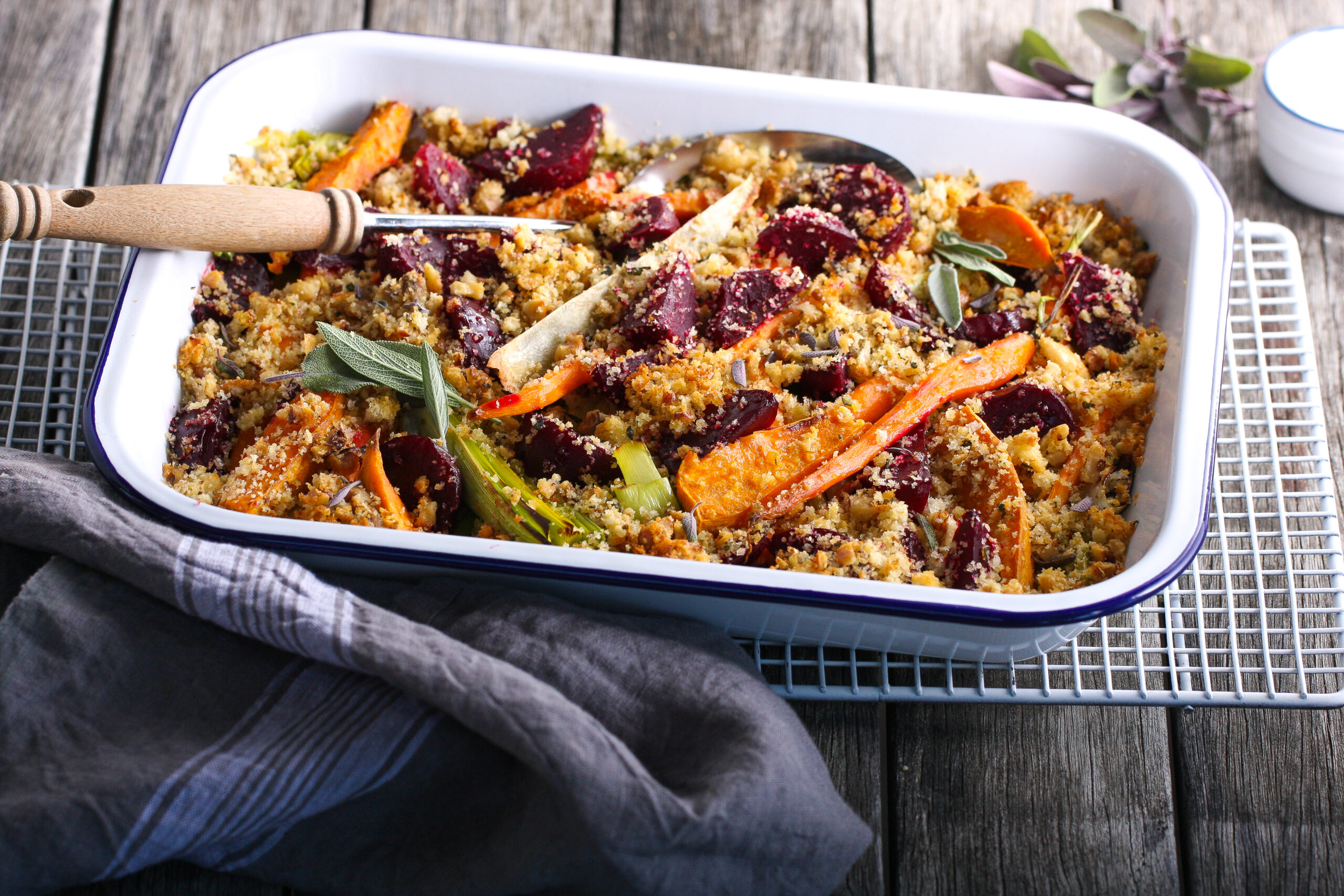In these times of busy, stressful schedules, rising rates of obesity and processed food lacking in nutrients, eating the right food is more vital than ever before. Eating well is the cornerstone of good health – and it can also improve your concentration, boost your energy, make you feel happier and become more resilient to stress. We list the top five vitamins and minerals New Zealanders are lacking – and how you can add them to your everyday diet.

1. Get smarter
Lack of iodine is one of the most common nutritional deficiencies in the world, and it’s of particular concern in countries where soils are naturally low in iodine – including New Zealand. The government introduced iodised table salt in 1939 to combat widespread deficiencies, but our iodine levels have gradually fallen as we consume less home cooking and more processed food, typically made using non-iodised salt.
Why’s the government so interested in iodine? Even a small iodine deficiency shows up as poor cognitive performance – or to put it another way, it takes your IQ down a few notches. A 2009 Otago University study discovered that iodine supplements given to school-age children with mild deficiencies had astonishing results. “The children who got an iodine tablet every day for seven months had an incredible ability to do problem-solving tasks compared to the children who just got a placebo,” says Dr Sheila Skeaff, one of the study’s authors.
Extreme iodine deficiency causes an abnormal enlargement of the thyroid gland, a condition known as goitre. Meanwhile, iodine deficiency remains the greatest preventable cause of mental retardation in the developing world.
In 2009 it became compulsory in New Zealand and Australia for commercial bread to contain iodised salt – except for organic and unleavened varieties, such as pitas. So if you and your kids are regular sandwich munchers, you’re probably safe. If not, make sure the salt you use in cooking and at the table is iodised, suggests Dr Skeaff, and don’t look to sea or rock salts to supply iodine as these contain only tiny amounts. Fish, seafood and dairy products are also good iodine sources. But don’t go overboard: a New England Journal of Medicine study in 2006 linked excessive iodine intake to hypothyroidism and other autoimmune problems.
It’s for this reason that Dr Skeaff doesn’t recommend kelp supplements. “They contain way too much iodine,” she says. “But a little bit of seaweed on something, that’s all right.”

2. Think more clearly
If you’ve got two X chromosomes, there’s a high chance you’ve felt the fuzzy-headedness and fatigue that signal your body is depleted in iron. Iron deficiency in Kiwi women has more than doubled since 1997, according to the New Zealand Adult Nutrition Survey. A third of girls aged 15-18 aren’t getting enough iron, while another 15 percent of women aged 31-50 are iron deficient.
Red meat, chicken and fish may be the most iron-rich foods around, but Kiwi women typically consume more iron from bread, fortified cereals and vegetables than from meat. Iron-rich plant sources include dark green leafy vegetables such as silver beet, bok choy and spinach, as well as beans, chickpeas, wheatgerm, wholegrains, tofu and dried fruit.
Adding a source of vitamin C to an iron-rich meal increases the amount of iron your body absorbs – try including tomatoes or capsicums with a meat dish, a glass of orange juice with a steak, or having fruit with your breakfast cereal. And go easy on coffee and tea as they prevent your body absorbing iron.
Vegetarians face an extra challenge in getting enough dietary iron as the body absorbs it less readily from plant-based sources than from animal sources, says Professor Rosalind Gibson of Otago University. “In plants, particularly in unrefined cereals, nuts and legumes, there is a high amount of a substance called phytic acid which binds minerals, especially iron and zinc, and prevents them from being absorbed and utilised by the body.”
Vegetarians need to consume about 80 percent more plant-based iron than their carnivorous counterparts to compensate for this. Gibson also suggests that vegetarians reduce the phytic acid content of their diet by soaking or sprouting beans before eating them.
“Let food be your medicine, and medicine be your food,” – Greek physician Hippocrates
3. Avoid illness
The mineral zinc isn’t just something to smear over your nose before heading to the beach. It helps you grow, bolsters your immune system and is essential for a proper sense of taste and smell. It’s especially vital for young kids – so it’s alarming that New Zealand toddlers are one of the groups at high risk of zinc deficiency.
A study by Gibson found that a third of Dunedin toddlers were low in zinc – something that can alter their sense of taste. “Toddlers tend to develop picky appetites and that reduces their zinc intake further,” she says. Kelly Dorfman, nutritionist and author of What’s Eating Your Child? observes the same problem. “Children with a deficiency of the mineral zinc can become almost repelled by the tastes or smells of many foods,” she writes.
When it comes to Kiwi adults, about 40 percent of men and 11 percent of women are lacking zinc, according to the New Zealand Diet and Nutrition Survey. Low zinc is also linked to poor immunity, so to avoid winter bugs, consider prescribing yourself a few medicinal oysters – by far the most zinc-rich food around. Other good sources of zinc are meat, eggs, fish, legumes, nuts, wholegrains, fortified cereals and seeds. For young ones, Gibson recommends zinc-fortified milk, meat dishes that are easy to chew or multivitamins.
Increasing your zinc intake will have an effect only if you’re deficient to begin with, she warns. “But if you’re low, zinc will certainly improve your immune competence and help you be less susceptible to infectious diseases.”
Legumes bought in bulk are one of the least expensive and most nutritionally rich forms of protein you can eat
4. Avoid cancer
Vitamin D helps protect us from cancer, depression and broken bones – yet according to Consumer New Zealand, a third of Kiwi kids and almost half of adults get too little of the ‘sunshine vitamin’. Up to 90 percent of the vitamin D in your body is made when skin is exposed to sunlight. But because we’ve become so good at slip, slop, slapping – and because our lives are increasingly spent indoors – we actually risk not getting enough of the good stuff.
Your body needs vitamin D in order to properly absorb calcium and phosphorus from food, explains naturopath Rosanne Sullivan. “Without adequate vitamin D, only ten to 15 percent of dietary calcium and about 60 percent of phosphorus [are] absorbed – increasing the risk of osteoporosis later in life,” she says. Osteoporosis is a big deal in New Zealand: one in two women and one in three men will develop it by the age of 60. Short, frequent bursts of mid-morning or early afternoon sun several times a week are all you require in summer.
But as we head into winter, you’ll probably need to increase that to 30 minutes or more daily of direct sunlight to maintain vitamin D levels. And the darker your skin, the more time you’ll need to spend in the sunshine, as melanin blocks the absorption of vitamin D, says Sullivan. According to a 2005 University of Auckland study, Maori, Pacific and South Asian people have the lowest vitamin D blood levels of ethnic groups in New Zealand.
Vitamin D can also be found in food. While your ancestors may have been spooned doses of cod liver oil to boost their vitamin D levels, today there are far more palatable sources: oily fish, eggs, meat and dairy products. And it’s not just your bones that will reap the benefits. Multiple studies suggest that vitamin D helps prevent cancer of the breast, colon and prostate. All the more reason for that walk in the sunshine.
5. Feel happier
Omega-3 essential fatty acids help us grow, think properly, remember where we left the car keys, and keep our hearts and immune systems running smoothly. Unfortunately they’re more elusive than most nutrients, with good dietary sources of omega-3 limited to oily fish, linseeds (also called flaxseeds), leafy greens and walnuts.
Omega-3 fatty acids are also believed to boost your mood. A National Institutes of Health study in 2005 shocked the medical community by finding “a predictive relationship between how much fish different populations ate and their levels of depression,” writes Dorfman in What’s Eating Your Child? “New Zealand, for example, where fish consumption is relatively low, had fifty times the depression rate of Japan, a country with a high rate of fish consumption.”
Other studies suggest that frequent small portions of fish ensure the maximum health benefits – see page 54 for more on this. Meanwhile, a 2011 study of 800 US military personnel found omega-3 fatty acids could help reduce depression and dementia. Participants who were low in omega-3 fatty acids were found to have a 62 percent higher risk of suicide than their non-deficient counterparts, and the US Army is now considering providing all personnel with omega-3 supplements in order to boost mental health and the ability to cope with stress.
Omega-3 essential fatty acids can also make a big difference to kids who struggle at school, says Sullivan. “Numerous trials have shown that supplementation with fish oils resulted in significant improvements in learning, behaviour and memory,” she says. Children with allergies, eczema, ADHD, and learning or behavioural disorders are often low in omega-3, she adds.
Fish oil supplements are a popular way to boost your levels, but Dorfman suggests checking the concentration as some varieties can contain little of the good stuff. Flaxseed oil offers an omega-3-rich vegetarian alternative.





